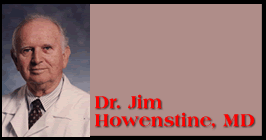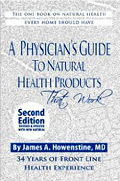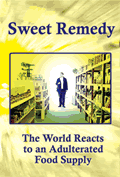ADRENAL INSUFFICIENCY
By Dr. James
Howenstine, MD.
May 24, 2009
NewsWithViews.com
The adrenal gland is designed to enable the body to “fight or flight” in emergency situations. The normal adrenal gland produces 20 to 50 mg. of cortisol daily. Health problems, allergic disorders, injuries, operations, malignancies and autoimmune diseases often cause greater need for cortisol production. Prolonged stress may overwhelm the adrenal gland’s ability to respond appropriately. A prime factor contributing to adrenal failure is the steadily decreasing capability of adrenal function due to loss of cortisol production from aging of the testes and ovaries. In patients who may have adrenal insufficiency tests to evaluate adrenal function are dangerous and unreliable. Laboratory studies attempting to verify adrenal insufficiency could use up the last remaining cortisone in the adrenal glands provoking a crisis state with low blood pressure(shock), low blood sugar, and imminent death if the correct diagnosis is not made along with appropriate therapy. Replacement of cortisone, fluids, and glucose must be promptly carried out.
Excess estrogen from drugs, food, vehicle exhaust, plastics, herbicides, pesticides increases blood estrogens. This condition is widespread in developed nations. High levels of estrogen create insulin resistance where sugar is not burned up. This promotes obesity. The enzyme aromatase increases the conversion of androstenendione and testosterone into estrogen thus lowering testosterone and increasing already high levels of the most potent estrogen (estradiol). The enzyme 5-alpha reductase converts testosterone into Dihydrotestosterone This reaction is blocked by high quality DeAromatase thus preserving more testosterone to counteract too much estrogen. DeAromatase also blocks the conversion of andostenenediol and testosterone to estrogen leading to rising testosterone and falling estrogen. The end result of uncontrolled aromatase is a hyperestrogenic state with very diminished levels of testosterone and very high levels of estrogen (primarily estradiol).
Steady stress from chronic diseases like cancer, rheumatoid arthritis, Lyme Disease, chronic fatigue syndrome, emphysema, heart failure etc will often be associated with inadequate production of cortisol. Repletion with 15 mg of hydrocortisone on arising, 10 mg at lunch and 5 mg at bedtime is usually sufficient therapy. Patients with adrenal insufficiency caused by cancer fare better if the hydrocortisone level is kept slightly above normal or in high normal range. Cortef can be easily substituted for hydrocortisone.
Eighty percent of cancer patients have adrenal insufficiency during their therapy.[1] All cancer patients need proper amounts of testosterone as well because:
•
Testosterone is critical to increased production of lymphocytes needed
to identify and kill cancer cells
•
Muscle wasting accelerates in states of testosterone deficiency
•
Lack of testosterone causes the pain threshold to diminish making pain
a greater problem. Correction of testosterone reduces pain severity by
50 %
•
Endurance and strength disappear and anemia may appear.
•
Depression becomes magnified. Therapy with testosterone often is
followed by disappearance of depression.
•
Osteoporosis accelerates in testosterone deficient states.
•
Estrogen excess is common in our modern world. This problem diminishes
testosterone blood levels and raises levels of the potent estrogen
estradiol.
Testosterone lack can be easily remedied by testosterone cipionate injections. Males respond to 200 mg a week for 2 weeks followed by 100mg every 10 days. Female dosage is 50% of male. Correction of adrenal and testosterone deficient states frequently is followed by major clinical improvement. This is quite common in patients suffering from malignancies.
Practical Aspects of Testosterone and Cortisone Replacement Therapy
Obtaining prescriptions for testosterone and hydrocortisone may be difficult. Conventional physicians are unaware that deficiencies of these 2 hormones are very common in states of chronic stress. They do recognize the existence of advanced adrenal gland failure (Addison’s Disease) but do not seem to realize that lesser degrees of adrenal failure are far more common than advanced adrenal insufficiency (Addison’s Disease) and also need to be treated. My only suggestion for this problem would be to continue to contact physicians until you find one willing to help you. Showing this article might help.
|
Subscribe to the NewsWithViews Daily News Alerts! |
Fear of testosterone is widespread among conventional physicians. They have been taught that testosterone causes cancer of the prostate gland. Unfortunately this is incorrect. Actually lack of testosterone is often the cause of prostate cancer and repletion of natural testosterone and progesterone to physiologic levels leads to cure of this cancer. British physician, Dr. Malcom Carruthers, treated more than 1000 men lacking testosterone both by testosterone implants and injections as reported in his 1996 book Maximizing Manhood. He noted neither enlargement of the prostate gland or prostate cancer in these men. The potent estrogen estradiol appears to cause prostate enlargement and prostate cancer.[2]
Footnotes:
1
- Personal Communication
Dr. X
2 -
Morgenthaler, A. et al Occult prostate cancer in men with low
testosterone levels. JAMA 1996 Dec 18;276(23):1904-6
© 2009 Dr. James Howenstine - All Rights Reserved





















